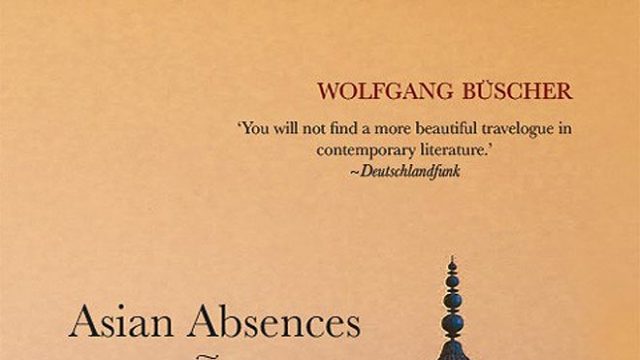It begins with fever, ‘Indian fever’ the doctor says, that comes from over the seven seas. The fever continues to heighten colours and sensations through a city in Rajasthan. Wolfgang Büscher’s friends abandon him in the empty white-washed room of a palace, which seems harsh in the context of all that intensity. One thing I have realised is that German travellers like a certain edge to their travels and tend to seek out the extremes of solitude.
Büscher’s experiences do not quite take him to the ends of the earth as Roger Willemsen’s did in The Ends of the Earth, but they take him almost to the peak, as he goes wandering after shamans and listens to tales of duels between demons, while Rudra the ‘howler’ visits him in a trance of tiredness. He balances on a slippery plank, boarding a boat named Mekong Mama.
If that sounds straight out of World War II, while on the boat, the passengers huddle on a deck that is actually the roof beneath a lowering monsoon sky with no shelter, either from the rain or the lurching waves. Although the book actually contains six essays, the sweep of the narrative covers quite a bit of South Asia, especially when Büscher is travelling by sea. Perhaps one wouldn’t call it Indian fever but sea fever as in the Masefield poem. Flowing down the Mekong, or across the Arabian Sea from Dubai to Singapore with a threat of pirates in between, are just some of the many experiences that Büscher writes about.
The ‘doctor’ appears and reappears and seems to be a kind of leitmotif underscoring Büscher’s fever of absences, all-knowing and harsh at times, and convinced that solitude is the remedy for many ills.
Büscher has a vivid sense of place—he can describe the romantic carpet of Arabian stars seen from the deck of a giant oil tanker or tiny gods abandoned in the cradle of tree branches with withered garlands around their necks; depictions that stretch from the lyrical to the grim. He also has a strong sense of history—his visit to Tokyo is informed by Germany’s Axis alliance with the Japanese, though his encounters with the Japanese and their punctilious politeness leaves him feeling remarkably stupid.
Cambodia isn’t about the Khmers who built Angkor Wat, but life in the troubled times of political cleansing and American wars, when people were hunted through the streets by wild boars who shared the starvation but who had the added benefit of eating human flesh.
Hand in hand with the places are the people, a Second Officer who practices cricket on his lonely watches on board his tanker, the small red-faced ‘shaman king’ who seems comical, but whose inner power emerges as part of a lonely destiny linked to the skull and crossbones of tantra, a man in black, encountered in a Siem Reap bar called the Red Piano, whose attitude shrieks Khmer Rouge, but who never reappears after their short conversation.
Perhaps Büscher’s absences are really absences from the self in search of the inner shakti—given his innate mysticism they certainly could be. In the end, we wander about looking for our true selves, whether through the prism of landscape or through the eyes of strangers.
In the end, it comes down to Shangri-La. Not a lost horizon but nascent Chinese commercialism in the mountains, a sardonic commentary on idealism.




